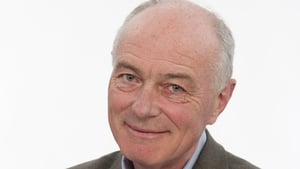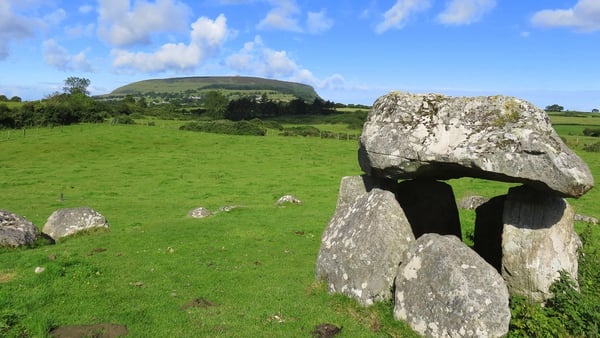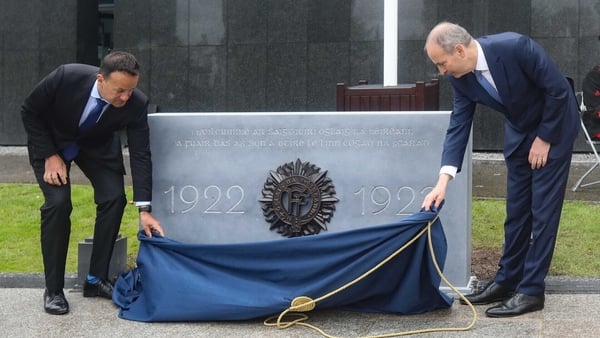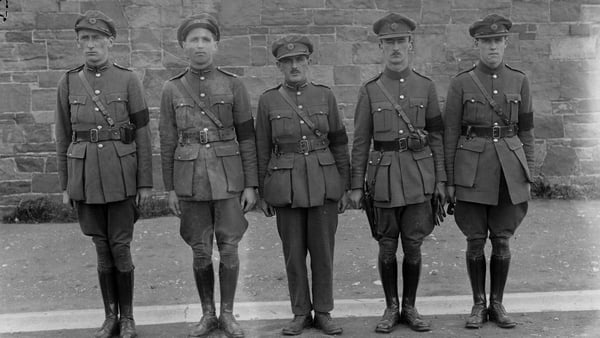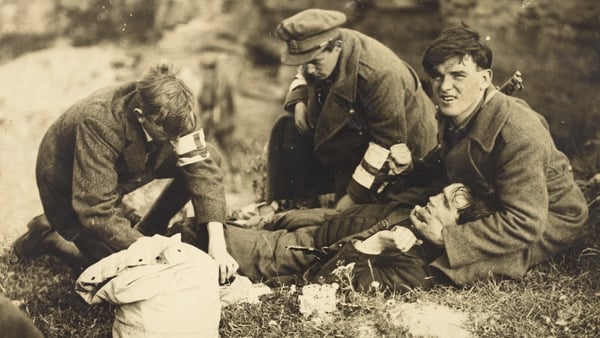Tomorrow marks the 100th anniversary of the execution of Robert Erskine Childers, the British- born gun runner and father of former president Erskine Childers. Donal Byrne looks back on his life and death.
Public school at Haileybury College, a first in law from Cambridge's most elite college and a career in the British public service are hardly the credentials you would expect of a man who became a gun runner for the Irish Volunteers.
Yet by the time Robert Erskine Childers sailed his yacht, 'Asgard’ into Howth, laden with hundreds of rifles and thousands of rounds of ammunition and delivered them into the eager arms of the Irish Volunteers in 1914 - two years before the Easter Rising - this servant of the British empire had become that and more.
Erskine Childers was an enigma. A man who signed up for the Boer War because he believed in the British Empire when it was at its most powerful, but who subsequently became impassioned by the case for Home Rule for Ireland.
He had spent some of his formative years on a 2,000-acre estate owned by his Irish mother’s family. As he grew older, he moved back and forth between his English world and his Irish one seamlessly, it would appear.
Like many Anglo-Irish people at the time, his identity was somewhere "in the middle of the Irish Sea" his great-grandson, also Erskine, told me when I recently interviewed him in New York.
He and his cousin Robert Barton undertook a car tour of Ireland in 1908 and witnessed a level of deprivation, poverty and inequality that convinced them Home Rule was unquestionably the only solution for the country’s future.
Only weeks after the gun running into Howth and Kilcoole in Co Wicklow, Childers enlisted into what became the RAF as an intelligence officer. He was a man who appeared to move from cause to cause with an inflexible determination to do the right thing.
His wife, whom he met on a tour of the United States, was of equally strong will and also a fervent supporter of Irish nationalism. She was descended from the original Puritans who fled England on the Mayflower. Small wonder then that she would share Childers’ political passion.
When Childers met Molly Osgood in Boston it was, according to Childers’ great-grandson "fireworks … He said he would marry her, or no one". Another writer, Basil Williams, said the couple "felt and thought for the rest of their lives as one being".
Molly had been invalided in a skating accident in her youth and could not walk unaided, yet she was the one who helmed the Asgard into Howth. She, Childers and others - ably helped by two hardy sailors from Donegal - had made a perilous journey from Hamburg.
Not alone was the weather atrocious, but at one stage they passed dangerously close to ships of the British fleet. They waved nonchalantly at the ships, passing themselves as a contented cruising party.
During that voyage, Childers took many photographs, knowing their value as propaganda to the Irish Volunteers. He took care, however, to ensure that none of them in any way indicated the extent of his wife’s disability.
The yacht was met at Howth by Éamon de Valera, Arthur Griffith and many others.
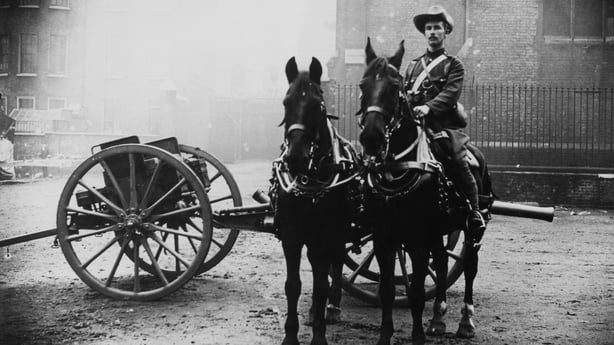
In defence of small nations, Childers went to war again. When he returned from World War I, he immediately offered his services to Sinn Féin. His cousin Robert at that stage had become a militant republican activist.
Initially, he was seen as valuable to Sinn Féin by De Valera and Collins. Arthur Griffith it seems, was less enthusiastic about a man with Erskine Childers’ background. It was an animosity that would grow into intense dislike, hatred even, as events during the Treaty negotiations would later indicate.
Childers beavered away as a propagandist and when the team to negotiate the Anglo-Irish Treaty of 1921 was being selected there were two things that ensured his inclusion. One was his closeness to De Valera - an advantage to De Valera, who would remain in Ireland - and his understanding of the workings and machinations of the British establishment.
He was appointed secretary to the delegation - an important distinction that others would highlight during the negotiations. In the words of Trinity College Dublin and University College Dublin historian Dr Martin Maguire, he was a man who began to behave more like a negotiator or plenipotentiary rather than an administrator.
In fact, this constant intrusion into the negotiations became a major issue. Childers assiduously questioned the smallest of detail, especially in relation to security matters and the oath of allegiance.
In his arguments, he became more obstinate and implacable. "Arthur Griffith grew to hate the man", notes Maguire.
He was also hated by the British side, notably Churchill, who regarded him as a traitor to his class and former allegiances.
Later, during the Treaty debates in Dublin, there occurred a crushing blow for Childers and his reputation. As Childers incessantly argued that the Treaty left Ireland irretrievably under British control, Arthur Griffith exploded and told him he would not reply to "any damned Englishman" in the chamber.
His great-grandson said it was probably the laughter that followed that was the most wounding aspect of the exchange for him. He also believes it was Griffith’s way of removing Childers from the political and public stage.
The Civil War that followed the acceptance of the Treaty became increasingly ruthless as the nascent State fought for its existence. It was perhaps at its most vicious in the south and it was there that Childers retreated to continue his opposition through his writings.
However, he was also suspected of military activities that threatened the State.
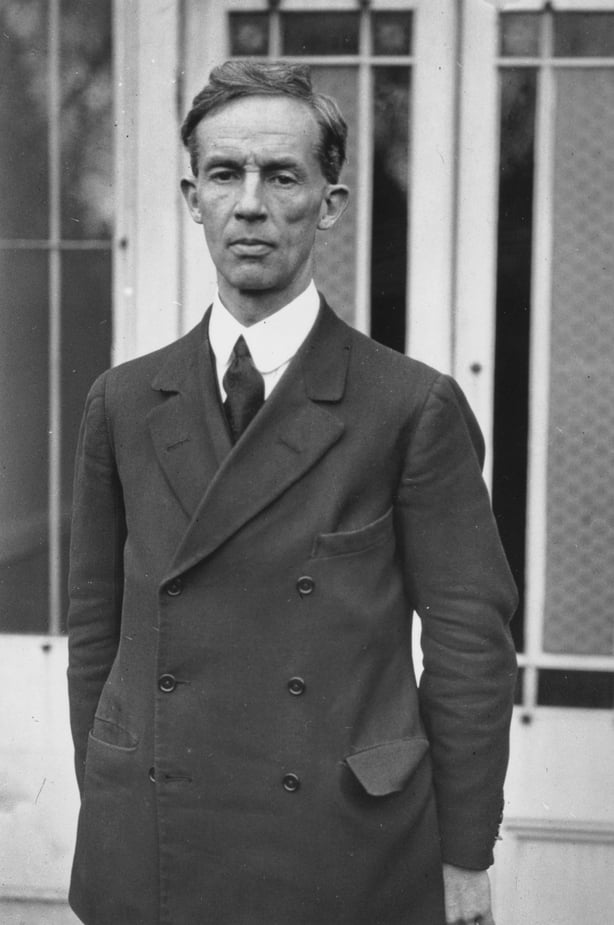
It was no surprise therefore when he was cornered in the house where he had spent some of his childhood years - Glendalough House in Wicklow. For him, it was home as much as any other place was.
His Irish mother, Anna had sent her children there to spare them from infection after she and her husband had been diagnosed with TB. Following her husband’s death, she was confined to a facility in England and died five years later, having never seen them again. Her correspondence to them makes for pitiful reading.
Emergency legislation at the time of Childers’ arrest provided for the death penalty for possession of a gun, at a time when there were guns everywhere in Ireland.
Ironically, it was the possession of a .32 caliber ‘Destroyer’ pistol that sealed his fate. That gun, he said, had been given to him by Michael Collins in more convivial times.
He was tried and found guilty by a military court under the new legislation and an appeal was duly lodged. However, before that appeal was even heard he was given the news of his impending execution.
On the night before he died, he was visited by his then teenage son, who would become President Erskine Childers in 1973.
During that short meeting he urged his son not to carry with him the bitterness of the Civil War and to forgive all who had signed his death warrant. Throughout his life, his son never did speak of that meeting in any detail.
The next morning, at 7am on 24 November 1922, he walked into a yard at Beggar’s Bush Barracks and shook hands with the members of a firing squad. He urged them to take a step forward towards him as it would be "easier that way".
Later, Molly requested the return of his personal items - his pipe, his cigarette case and cufflinks among them - but they had been stolen, something that caused her great anguish.
There are those who may know little or nothing about Robert Erskine Childers’ political and revolutionary CV, but he is globally famous for another achievement.
He was a very talented writer. His 1903 novel, 'Riddle of the Sands' - regarded by many as the prototype of modern spy novels - has never been out of print in almost 120 years.
Set around the Frisian Islands in the North Sea, it presciently observed how easily the German fleet could spearhead an attack on the English coastline.
British author John le Carre described it as "one of the great foundation stones of the contemporary novel of espionage and adventure with political teeth".
Molly Childers lived on quietly in Dublin, rearing her two sons and honouring the legacy of her husband.
On the day of his inauguration as president, his son was said to have asked his wife Rita, "I wonder what Erskine and Molly would have made of me now?"
You can watch Donal Byrne's programme on the life of Erskine Childers on Nationwide this evening at 7pm on RTÉ 1.
